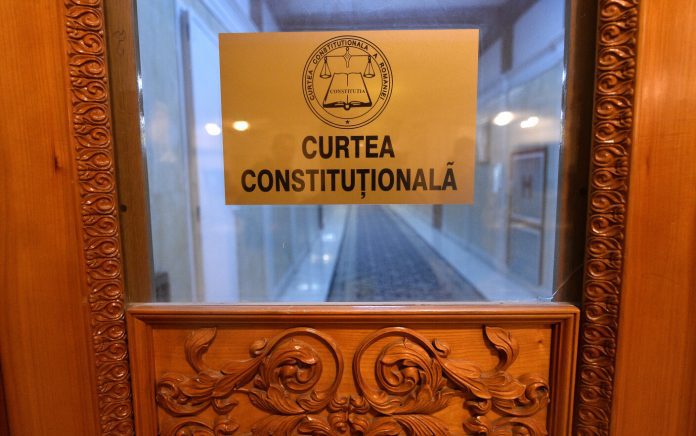The Constitutional Court of Romania (CCR) maintains, in the decision by which it rejected the presidential candidacy of Diana Sosoaca, that the right to be elected to a public office is not absolute, and may be subject to certain limitations, while the candidates must respect the Constitution and defend the values of democracy, including Romania’s membership in the EU and NATO.
„The right to vote and the right to be elected are crucial for establishing and maintaining the foundations of a genuine and effective democracy, governed by the rule of law (see Judgment in the Case of Karacsony and others v. Hungary on 17 May, 2016, paragraph 141) and are guaranteed by the Constitution. Thus, the Court considers that the right to be elected is a fundamental right of a political nature, represents a sine qua non of democracy and the democratic functioning of the state and is exercised in compliance with the requirements of the Constitution and the laws. The right to be elected does not have an absolute character, and may be subject to limitations, the configuration of which results from the democratic vision of the Constitution (see the Judgment on April 6, 2000, pronounced in the case of Labita v. Italy, paragraph 201, or the Judgment on December 6, 2022, pronounced in the case of Kalda (2) v. Estonia, paragraph 39). At the same time, the Court notes that the right to be elected may be subject to stronger limitations and conditions compared to those imposed on the right to vote (see, mutatis mutandis, the Judgment in the Case of Etxeberria and others against Spain on June 30, 2009, paragraph 50, or the Judgment in the case of Daydov and others against Russia, on May 30, 2017, paragraph 286), says the CCR in the reasoning of the decision, published on Monday.
In the CCR’s opinion, from a normative point of view, the Constitution orders public power and regulates fundamental rights and freedoms, benefiting from supreme normative authority in the state.
„The values, principles, standards, requirements and procedures of a constitutional nature are imposed on all subjects of law, which means that, through their entire conduct, they must value them, respect them and prove loyalty to the Constitution, its values and citizens, and not only for a political current or a political party (…)”, states the Court.
According to the constitutional norms, the president of Romania oversees the observance of the Constitution, which means that this one-person public authority has the constitutional obligation to permanently monitor the application of the constitutional provisions by the state authorities and to ensure that these provisions are implemented according to the letter and the spirit of the Constitution.
„The person who exercises this dignity, through his/hers institutional behaviour and constitutional discourse, must demonstrate the existence of his/her respect and attachment to the constitutional values as they appear from the national identity of the Romanian people and the constitutional identity of the state and society enshrined in the Fundamental Law. Their objection cannot be accepted, as the president of Romania, by the nature of his/her position, is a guarantor of the rule of law and constitutional democracy, principles that underlie the organization and functioning of the state. To deny or distort these principles is equivalent to repudiating the very idea of Constitution and constitutionalism, which characterize the existence of the rule of law,” the Court also says.
The judges also refer to Diana Sosoaca’s statements regarding Romania’s membership in the EU and NATO structures.
„The Euro-Atlantic integration and the fact that Romania is part of the great European family that is based on the idea of a state governed by law and democracy represents a landmark in the constitutional history of the state, which indicates an irreversible constitutional option. It is axiomatic that the very adoption of the Constitution since 1991 has the meaning of rejecting totalitarian, authoritarian or anarchic regimes, which means that democratic levers cannot be used for the purpose of distorting/contesting the constitutional order thus established or Romania’s European course. Membership in the EU and NATO constitutes the political and military guarantee of the democratic evolution of the state while also insuring the existence of the rule of law”, explains CCR.
The judges admit that any citizen can criticize the content or normative solutions included in the Constitution and can conduct a campaign, propose and debate topics involving the revision of the Constitution, but only in accordance with the democratic values and rules, democratic regression or of the rule of law being excluded.
AGERPRES




